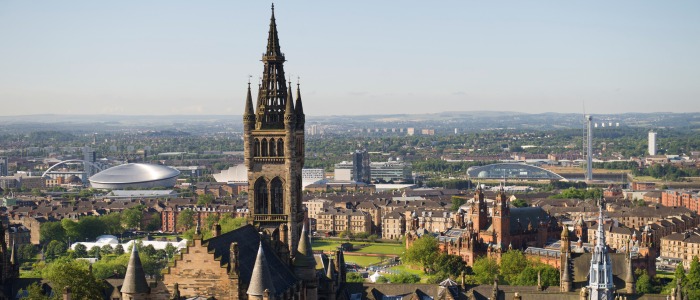University of Glasgow Collaborates on Culture and Heritage Discussions in Rome, Fostering Global Dialogue
A collaboration between the University of Glasgow and ICCROM (International Centre for the Study of the Preservation and Restoration of Cultural Property) brought together global heritage experts and economists to discuss the value of culture and heritage in Rome.
‘Valuing Cultural Capital’ was held at the official residence of the Ambassador of the United Kingdom to Italy and the Ministry of Culture of Italy on 5 and 6 December. The UofG’s Principal and Vice-Chancellor, Professor Sir Anton Muscatelli, attended the event.
Over two days, delegates explored the vital role culture and cultural heritage play in bettering people’s lives, and how this contribution might be acknowledged more holistically within policy and decision-making to promote wellbeing.
An evening reception began the proceedings, featuring distinguished speakers from the fields of cultural capital economics and wellbeing.
Speakers and guests were welcomed by Professor Sir Anton Muscatelli; Lizzie Lovat, Advisor of the Political and Bilateral Section of the British Embassy in Rome; Joseph King, Senior Director of ICCROM; and Erminia Sciacchitano, Senior Advisor on Multilateral Affairs at the Ministry of Culture of Italy.
Professor Sir Anton Muscatelli said: “As a historic University with a rich and diverse heritage, we understand the immense value of culture to our collective understanding of key issues, the communities we serve, the economy and the wellbeing of society as a whole.
“I’m pleased that colleagues from the University of Glasgow are collaborating with partners like ICCROM to share their insights and expertise in this field of research, shaping our wider understanding of the hidden value of cultural capital and the social benefits that it can bring.”
ICCROM’s Senior Director Joseph King added: “Through our collaboration, ICCROM seeks to share and disseminate the groundbreaking work that is carried out by cutting-edge research initiatives, including those in the UK.”
The event featured keynote speakers David Throsby, Distinguished Professor of Economics at Macquarie University, Australia; and Harmann Sagger, Head Economist for Arts, Heritage and Tourism at the UK’s Department for Digital, Culture, Media and Sport (DCMS).
Professor Patrizia Riganti, Professor in Tourism in the University of Glasgow’s School of Social and Environmental Sustainability, joined the lively panel session that followed this.
The evening’s host, Ambassador Rt Hon Edward Llewellyn of the British Embassy in Rome, stated: “The link between culture and well-being – between our cultural heritage across the world and our well-being as human beings – is more acute and more keenly felt today than it has been for many years.”
On the following day, ICCROM held a workshop that considered the use of economic methods as tools for informing heritage policy and investment decision-making and highlighted recent research developments.
Participants explored how cultural capital valuation methods can benefit heritage practice, providing useful tools and processes for informing community-based decision-making and driving better outcomes.
The event was well attended, with representatives from ICCROM Member States Dominican Republic, Estonia, Latvia, Lithuania and Costa Rica.

